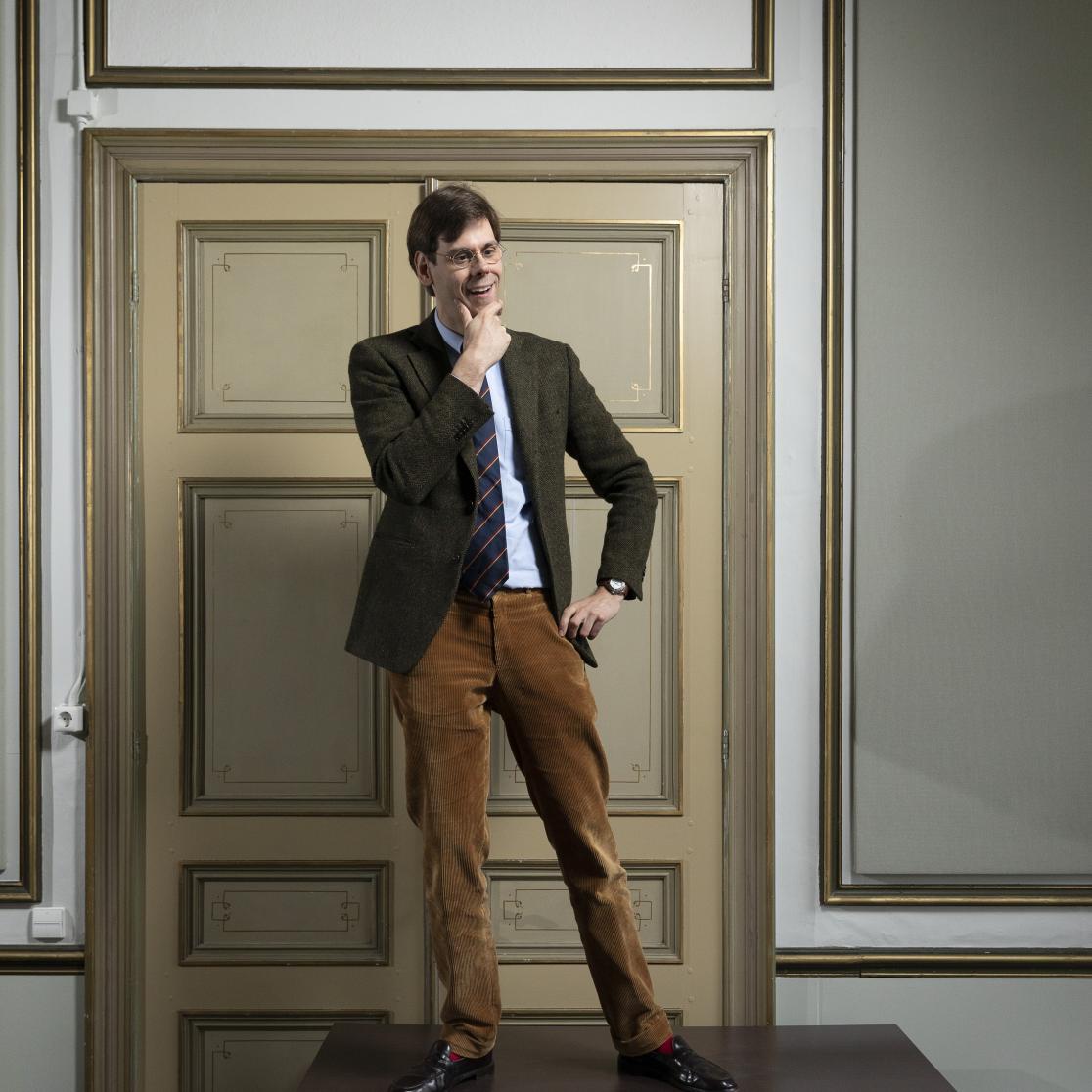Turn complaints into improvements
Until 27 February, employees can put themselves forward as candidates for the Service Council. Chair of the University Council Teun Dekker on how you have a real chance to improve working conditions at UM and why that matters to everyone’s wellbeing.
“At university, we have representation at every level,” Teun Dekker explains; “for every power there’s a counterbalancing participatory body.” Dekker himself is the chair of the University Council (UC), the body elected to shadow the Executive Board. In addition, each faculty has a Facility Council and each service centre a Service Council. The UC and Faculty Council consist of staff and students in equal numbers, whereas the Service Councils, naturally, are made up of only staff. All of these organs are elected to consult and spar with the respective management.
Serious partners in policy-making
“The councils have a whole range of rights,” says Dekker, who is also Professor of Liberal Arts and Sciences Education and Vice-Dean of Academic Affairs at University College Maastricht. “They can request information, their advice needs to be heard before decisions are made and on some issues management can’t go ahead without their consent.” He recalls a recent disagreement on the mechanisms by which deans are appointed and how the Executive Board had to compromise on their initial proposal.
“UM is actually very open to having this conversation. Of course, we have our disagreements, but the Executive Board and the deans are actively looking for input. That’s how you arrive at good decisions: you need to understand the struggles and needs of the people you manage. Good faith interaction and transparency adds legitimacy and helps you be a better manager.” Dekker previously was on FSE’s Faculty Council and was hired by the current UC as chair with his tenure beginning last May.
Real opportunity to make a difference
“It’s an amazing opportunity to make a difference!” Dekker adds that, while it’s easy to find students who are politically engaged and willing to put themselves forward as candidates or join a list, at the service centres, fewer people run for office. “I think we need to do a better job at communicating and creating awareness that this opportunity exists and how much it matters. Most of us spend most of our waking time at work, so the conditions as well as the sense of agency and being heard have a big impact on our wellbeing.”
Being a UC member takes up a day per week, which is financially compensated. Membership of a faculty or service council requires around a day of work per month spent on meetings and preparation – arguably less than the average person spends complaining about work informally, so one might as well do it in a structured way with coffee and snacks provided. “You get to complain to your bosses about work – and they have to listen!”
“You get to complain to your bosses about work – and they have to listen!”
Teun DekkerAll issues matter
What’s more, they are willing to listen. Membership in these councils put its members in the driver’s seat to resolve real grievances, big and small. “Your impact ranges from the large to the mundane – therein lies the charm.” A current priority is helping to improve UM’s new disability policy, but getting a microwave for students of the inner city library has also made a difference to people’s lives.
Similarly, while the UC is obviously preoccupied with the cooperation with MUMC+ or the precarious situation around internationalisation, which disproportionately affects UM, “there are also a lot of other things we are working on – such as sustainability, Recognition & Rewards, political activism, or how to create a welcoming culture.”
The councils gather information not only from the management layer but also from the groups they are representing. “Work pressure is a big issue for many people at the moment, so we and other councils want to work with the deans and the Executive Board to make positive changes. I do get the sense that everyone realises that something needs to be done to ensure the continued flourishing of UM.”
Dekker encourages everyone to consider putting themselves forward. “It’s a great experience and a lot of fun! You get to play a constructive role in helping to shape your workplace, you learn how the organisation works, how to participate in meetings, and it certainly doesn’t hurt your CV because it shows that you’re engaged and have acquired lots of skills.” Of course, he is quick to add, you should also vote in the elections.
Learn more about the process and nominate yourself or others here.
Text: Florian Raith

Also read
-
AMIBM hosts the final Realise-Bio conference
The Aachen Maastricht Institute of Biobased Materials (AMIBM) hosted last week the third and final Realise-Bio annual conference, bringing together the Dutch and German bioeconomy ecosystems at the Brightlands Chemelot Campus.

-
Teacher Information Points at UM
UM faculties now host Teacher Information Points (TIPs) that offer local, “just-in-time” and on-demand support for teaching staff. The aim is simple: to provide help that is closely connected to day-to-day teaching practice.

-
In Kerkrade, you can listen to the invisible universe
UM and Discovery Museum in Kerkrade make the Einstein Telescope understandable for everyone.
